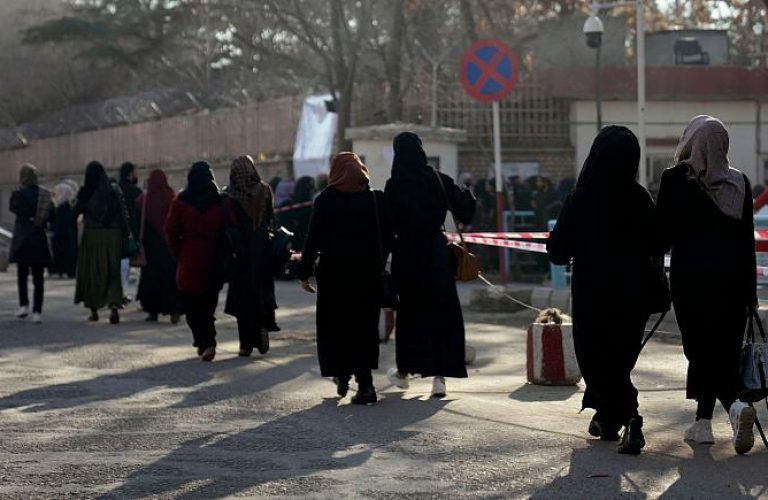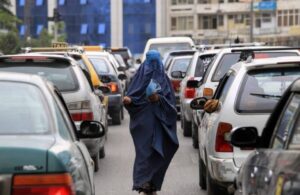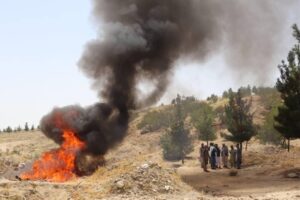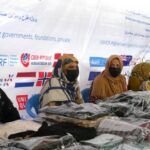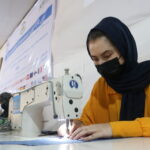Author: Mahdi Mozaffari
In their latest restrictive measure against women, the caretaker government has banned the education of girls in medical institutes across Afghanistan “until further notice.” According to reports from Afghan news agencies, officials from medical institutes in Kabul and other provinces have confirmed that the Ministry of Public Health issued this directive to all these centers last week. Available information indicates that this ban was directly ordered by Hibatullah Akhundzada, the leader of the government based in Kandahar, and the Ministry of Public Health has been tasked with its implementation.
One official from a medical institute in Kabul emphasized in conversations with some journalists that this directive was issued under the direct supervision of the government leader and applies to all private and public medical training centers. In this context, an audio message attributed to a government official has been circulated, addressing the heads of medical institutes, stating that the education of female students is prohibited until further notice. This message also warns that government intelligence forces will closely monitor medical institutes, and if they observe the presence of girls in these centers, they will shut them down. This message, which has rapidly circulated on social media, has raised serious concerns.
Several female students in Kabul have also confirmed this ban, stating that they have been instructed to refrain from attending their classes. This action by the current rulers is a continuation of the extensive restrictions they have imposed on women and girls in Afghanistan, causing deep concern among the local community and international human rights organizations. Many observers believe that this decision directly limits educational and employment opportunities for women and will have irreparable negative consequences for the country’s health system.
Complete Exclusion of Women and Girls from the Education Cycle in Afghanistan
The current government has taken the final step toward the complete exclusion of women and girls from the education cycle in Afghanistan by banning the education of girls in medical institutes. Previously, public and private medical institutes served as the only remaining educational opportunity for Afghan girls, allowing women to continue their two-year studies in these centers. Many girls utilized this pathway to improve their professional and living conditions. Now, with the implementation of this ban, the rulers have eliminated the last hopes for women’s education, completely depriving them of access to learning.
This prohibition is part of the systematic policies of the government aimed at removing women from the fields of education and employment in Afghanistan. After seizing power, this group initially prohibited all girls above the sixth grade from attending school. This restriction has been in place for over three years, leaving approximately one and a half million adolescent girls deprived of their right to education in schools. Subsequently, the caretaker government made another decision to ban women’s education in public and private universities, preventing thousands of female students, including final-year students, from continuing their studies.
These actions, carried out with a gradual yet targeted strategy, have ultimately led to the complete removal of women and girls from the country’s educational system. The government’s policies not only isolate women and girls from education but also deprive Afghan society of the active participation of half its population in educational, health, and social affairs. This regressive approach, often justified with phrases like “until further notice,” has practically fueled a cycle of inequality, poverty, and dependency for Afghan women and has drawn widespread criticism from the international community and human rights organizations.
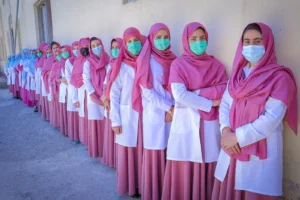
The Last Glimmer of Hope Has Also Been Closed
Several female students in Kabul studying at private medical institutes have expressed “deep despair” and “serious concern” over the ban on education in these centers. In conversations with local journalists, these students stated that education at these institutes was their last hope for achieving a bright future. With this avenue now closed, they see all their educational opportunities as lost and face an uncertain and bleak future. This ban represents another blow to the hopes of girls who have struggled for years to attain academic and professional standing.
One student mentioned that her family had been covering her tuition at a private medical institute despite numerous economic hardships. She was only one semester away from graduation, and according to her, all her efforts to gain expertise in a field she was passionate about have now gone to waste. Another student, who previously studied economics at Kabul University, explained that after the ban on female students at universities, she was forced to drop out and spent two years at home. She suffered from depression and psychological pressure due to being deprived of education but eventually decided to enroll in a private medical institute to pursue a two-year program. She said she had only completed one semester when the current rulers once again halted her education.
Many other students share similar feelings of despair and lack of motivation. They believe that all their efforts have been in vain and that they have lost their futures. These students say that each time they hoped for a fresh start and sought alternative paths, the government blocked all remaining avenues with new decisions. These actions have not only had severe psychological and social impacts on these girls but have also deprived Afghan society of their academic and professional capacities. While the international community condemns these actions, the lives of Afghan girls continue to be destroyed under the shadow of restrictions and repression.
Consequences and Impacts of Excluding Women from the Education Cycle
Psychological and Social Impacts
The complete prohibition of Afghan girls from education has left profound and widespread psychological consequences on this segment of society. Many girls who sought their dreams in academic and professional fields are now grappling with feelings of hopelessness, worthlessness, and depression. This systematic deprivation has isolated them from society and fostered a sense of identity crisis among Afghan girls. Furthermore, this decision has had extensive negative impacts on families, as many parents who have strived for their children’s education have now lost hope for their future. This situation can lead to an increase in family problems, including psychological and economic tensions, and severely undermine social cohesion.
Economic and Professional Impacts
The prohibition of girls’ education will also have destructive effects on the economic development and workforce of Afghanistan. By excluding half of the population from the education cycle, Afghanistan will face a severe shortage of skilled workers in key areas such as healthcare, education, and management in the future. This situation not only eliminates economic opportunities for women but also deprives the country of their effective and constructive participation. Particularly in the healthcare sector, women play a vital role as nurses, caregivers, and doctors; their exclusion from education could paralyze the country’s health system. This shortage of skilled professionals will increase Afghanistan’s dependency on foreign aid and hinder sustainable economic growth.
Cultural Impacts and Future Generations
The deprivation of girls from education will have a detrimental effect on Afghanistan’s cultural future. Education is a key factor in nurturing informed and empowered generations, and by eliminating this opportunity, the risk of perpetuating cycles of poverty, ignorance, and extremism increases. In the absence of educated girls, traditional and restrictive roles for women become further entrenched, leaving society deprived of the benefits of women’s capabilities in decision-making and leadership roles. Additionally, children who grow up in families where their mothers have been denied education will have less chance of experiencing a suitable educational and cultural environment. This prohibition, in the long term, will inflict irreparable damage on Afghanistan’s cultural, social, and scientific advancement, placing the country on a path of regression.

